English
“In the beginning was the Word.” John 1:1Click here to read about our curriculum offer and download our progression maps
At Clifton-upon-Dunsmore Primary School, we passionately believe that literacy and communication are key life skills. Through our English Curriculum, we strive to give our children the necessary tools to be able to communicate effectively and creatively through spoken and written language and to equip them with the skills to become lifelong learners. We encourage children to develop a love of reading and an appreciation for literature in its rich variety by using quality texts and topics that inspire and excite them to become young readers and writers.
The English curriculum is delivered using the National Curriculum English Document (2014). The Early Learning Goals are followed to ensure continuity and progression from the Early Years Foundation stage through to the National Curriculum. Throughout the school, we adopt a mastery approach to English teaching and do not impose any 'glass ceilings' on our pupils: the same high expectations apply to all learners, and where there is evidence that a child, or group of children, are falling behind, we will intervene quickly in order to ensure that they can catch up.
Where appropriate, English units will link to other areas of the primary school curriculum to promote cross-curricular learning, although this will not be forced: our primary objective will be to ensure that learning is focused on high-quality, engaging texts.
Reading
Reading is an important part of the English curriculum in our School. In Reception and in Year 1, our reading is organised through the Little Wandle phonics scheme: each class will be organised into small groups that will read a text that is appropriate to their level of attainment and progress. They will read this text three times in school, focusing on developing their decoding, prosody and comprehension skills. This book will then be sent home so that the child can enjoy and celebrate their achievement in reading with parents or carers. All children in Reception and Year 1 will also have a daily phonics lesson as part of the Little Wandle scheme.
As children progress through Year 2, our expectation is that they will transition from Little Wandle to the Accelerated Reader scheme. This will promote a deeper love of reading by using non-scheme books, with a wide range of texts by some of the best authors. Whilst the majority of pupils will be ready to make this transition in Year 2, some pupils will continue to need the support of the catch-up materials that Little Wandle provides throughout Key Stage 2. Likewise, we recognise that some children in Year 1 and even Reception may be ready to start Accelerated Reader. We always strive to support, challenge and encourage our pupils at their own level, regardless of age or stage.
In order to really value reading, we encourage all of our children to read regularly both in school through dedicated reading time every week and at home. Each parent is given the opportunity to liaise with teachers through reading record books which record when the children have been listened to in School by a member of staff or a volunteer, and at home, and any issues or positives there may be.
Shared reading takes place within English lessons to provide enriching experiences through more challenging texts. Teachers also share stories with the class displaying enthusiasm for reading and setting a positive example as a reader.
The school environment has a big focus on reading and books are readily accessible for everyone.
Writing
As a school, we have adopted the Power of Reading to ensure that high-quality texts are used to promote reading into writing opportunities. Shared and modelled writing takes place within English lessons. This allows the teacher to demonstrate good writing practice to the children while using their ideas. Teachers ensure that the writing demonstrated shows high expectations and covers the success criteria they would expect to see in the children’s writing. We believe that children's writing is more successful when they have a real purpose for writing.
In the new English curriculum, grammar, punctuation and spelling now play a key role in the children’s writing. Across the school, the children have dedicated time to be taught spelling and grammar rules. They are then given focused spelling or grammar tasks to practise. These skills are referred to during English lessons and children are encouraged to integrate their grammar and spelling learning within their writing.
Download our Intent Statment for English






